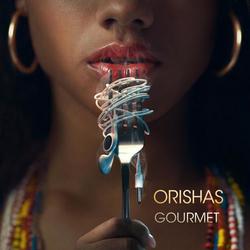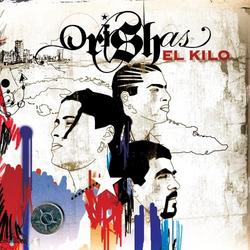Orishas, a trio of Cuban expatriates living in Europe, continue to refine their Latin fusion style on Cosita Buena, their fourth album of all-new material.
The group began as a Latin rap quartet, releasing its groundbreaking album debut, A Lo Cubano, in 2000, a couple years before reggaeton would begin charting a more or less similar course, fusing tropical rhythms with urban beats and raps.
What made A Lo Cubano so groundbreaking at the time of its release was not only its socially conscious world-view, giving voice to a group of thoughtful Afro-Cubans who had left the confines of Cuban society behind in favor of Europe and its cultural openness, but also its fusion of Afro-Cuban rhythms and melodies with hip-hop.
The problem for some fans of A Lo Cubano, of which there are legion, is that Orishas departed ever further from the Latin rap style of that debut album with each subsequent full-length effort.
The socially conscious world-view remained firmly in place, thankfully, as did the group's Afro-Cuban roots.
However, as Orishas refined their musical fusion with each subsequent album -- drawing from a wider range of musical styles, and adding more instrumentation and singing to their songs -- their propensity for fusion began to supplant their identity as a Latin rap group.
That's certainly the case on Cosita Buena, an album on which the raps of Ruzzo and Yotuel, once front and center, seem increasingly secondary.
Front and center on Cosita Buena are Roldán, whose melodic singing and choruses are the driving force behind most of the songs, as well as the musical productions, which are wonderfully dynamic, featuring everything from hip-hop beats, turntable scratching, horn blasts, fat basslines, and tight rhythms to additional layers of strings and guitar.
Moreover, the productions vary from song to song, giving each a different feel; take for instance the standout songs "Cosita Buena," "Bruja," "Camina," "Machete," and "Hip Hop Conga," each markedly unique.
Part of the distinctiveness of the songs on Cosita Buena is undoubtedly due to the rapping of Ruzzo and Yotuel, whose thoughtfulness and eagerness to address serious matters continue to differentiate Orishas from the majority of their rap and reggaeton peers.
But here on their fourth album, Orishas sound a world apart from where they began on A Lo Cubano, and while they're as impressive as ever, especially in terms of originality and musicality, those fans who continue to hope for a return to straightforward Latin rap are likely to be disappointed.
On the other hand, those fans who have marveled at the evolution of Orishas from album to album have plenty of reason to enjoy Cosita Buena, another admirable step forward for the progressive-minded group.
| Title/Composers | Performer | Listen | Time | Size | Size | |
|---|---|---|---|---|---|---|
| 1 | Cosita Buena | Orishas | Play | 03:32 | 8 MB | 25 MB |
| 2 | Maní | Orishas | Play | 03:41 | 8 MB | 25 MB |
| 3 | Bruja | Orishas | Play | 03:39 | 8 MB | 22 MB |
| 4 | Camina | Orishas | Play | 03:44 | 8 MB | 26 MB |
| 5 | Guajira | Orishas | Play | 03:44 | 8 MB | 25 MB |
| 6 | Borrón | Orishas | Play | 03:33 | 8 MB | 23 MB |
| 7 | Mírame | Orishas | Play | 04:18 | 9 MB | 27 MB |
| 8 | Que Quede Claro | Orishas | Play | 04:09 | 9 MB | 27 MB |
| 9 | Machete | Orishas | Play | 03:20 | 7 MB | 24 MB |
| 10 | Isi | Orishas | Play | 04:12 | 9 MB | 28 MB |
| 11 | Público | Orishas | Play | 03:36 | 8 MB | 24 MB |
| 12 | Melodías | Orishas | Play | 03:49 | 8 MB | 26 MB |
| 13 | Hip Hop Conga | Orishas | Play | 03:56 | 9 MB | 29 MB |
| 49 mins | 112 MB | |||||
| 49 mins | 336 MB | |||||
| Artist | Job | |
|---|---|---|
| 1 | Orishas | Primary Artist |
| Quality | Format | Encoding | Description |
|---|---|---|---|
| Standard | MP3 | 320kps 44.1kHz | MP3 is an audio coding format which uses a form of lossy data compression. The highest bitrate of this format is 320kbps (kbit/s). MP3 Digital audio takes less amount of space (up to 90% reduction in size) and the quality is not as good as the original one. |
| CD Quality | FLAC | 16bit 44.1kHz | FLAC is an audio coding format which uses lossless compression. Digital audio in FLAC format has a smaller size and retains the same quality of the original Compact Disc (CD). |







